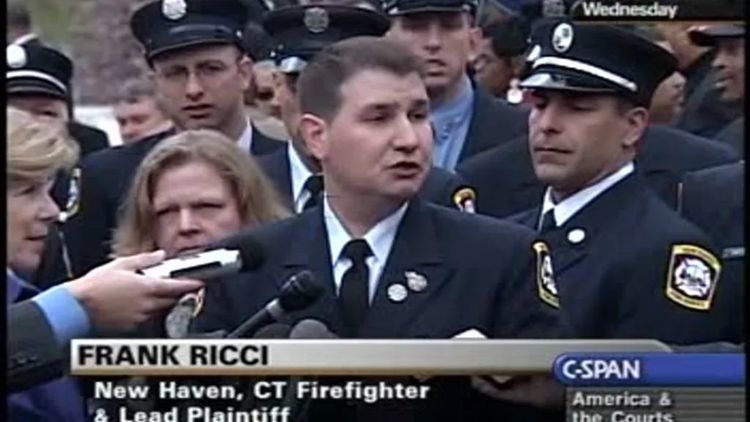


12/19/2008
Stuart Taylor has an angry piece in the National Journal about a lawsuit in which New Haven, CT, is being sued for refusing to promote a fireman who passed the lieutenant’s exam because he’s white.
Frank Ricci, a firefighter in New Haven, Conn., worked hard, played by the rules, and earned a promotion to fire lieutenant. But the city denied him the promotion because he is not black. Ricci sued, along with 16 other whites and one Hispanic firefighter. After a 7-6, near-party-line vote [PDF]by a federal Appeals Court to dismiss the lawsuit, the plaintiffs petitioned for Supreme Court review. … Ricci studied for eight to 13 hours a day to prepare for the combined written and oral exam in 2003 that he hoped would win him a promotion. He spent more than $1,000 buying the books that the city had suggested as homework and paying an acquaintance to read them onto audiotapes. (Ricci is dyslexic and learns better by listening.) And he got one of the highest scores.
But Ricci and other would-be lieutenants and captains with high scores did not get the promotions they expected. The reason was that–because not enough black firefighters had done well enough to be eligible–New Haven decided to discard the test results and make no promotions at all. … Five of the majority judges, including Sotomayor, retorted that New Haven’s decision to discard the test results and deny what would otherwise have been virtually automatic promotions to the highest-scoring white and Hispanic firefighters was “facially race-neutral.” The reason? Because none of the low-scoring, ineligible African-American firefighters was promoted either. These five judges also endorsed Judge Arterton’s conclusion that the city’s decision was justified by fears that promoting the high-scoring whites might violate Title VII of the 1964 Civil Rights Act and bring a discrimination suit by the low-scoring blacks. … But even so, failing to award a roughly proportionate percentage of promotions to African-Americans could subject New Haven, or any other employer, to Title VII liability–depending on the identity of the judge–unless it could prove that it could not possibly have found another exam on which blacks might have done better.
Indeed, large racial disparities in performance on written tests used by employers and others have long existed throughout the country. That’s what one might expect, given data showing that the average black high school graduate has learned no more than the average white or Asian eighth-grader.[Emphasis added.] But the law treats these disparities as evidence of racial discrimination. Many employers, therefore, seek to avoid liability by giving racial preferences to minorities, and they will continue to do so unless and until the Supreme Court modifies, or clarifies, the law.
[New Haven’s Injustice Shouldn’t Disappear |The Supreme Court should agree to hear the case of a firefighter who was denied a promotion because he is not black. by Stuart Taylor, December 13, 2008(If the link goes down, try here.)]
I've written that the message of Griggs vs. Duke Power, 1971,and "disparate impact" theory is that "[I]f minorities fail tests at a higher rate than whites, it’s the test that’s wrong." This is not the case, and it’s good to see the National Journal saying that.